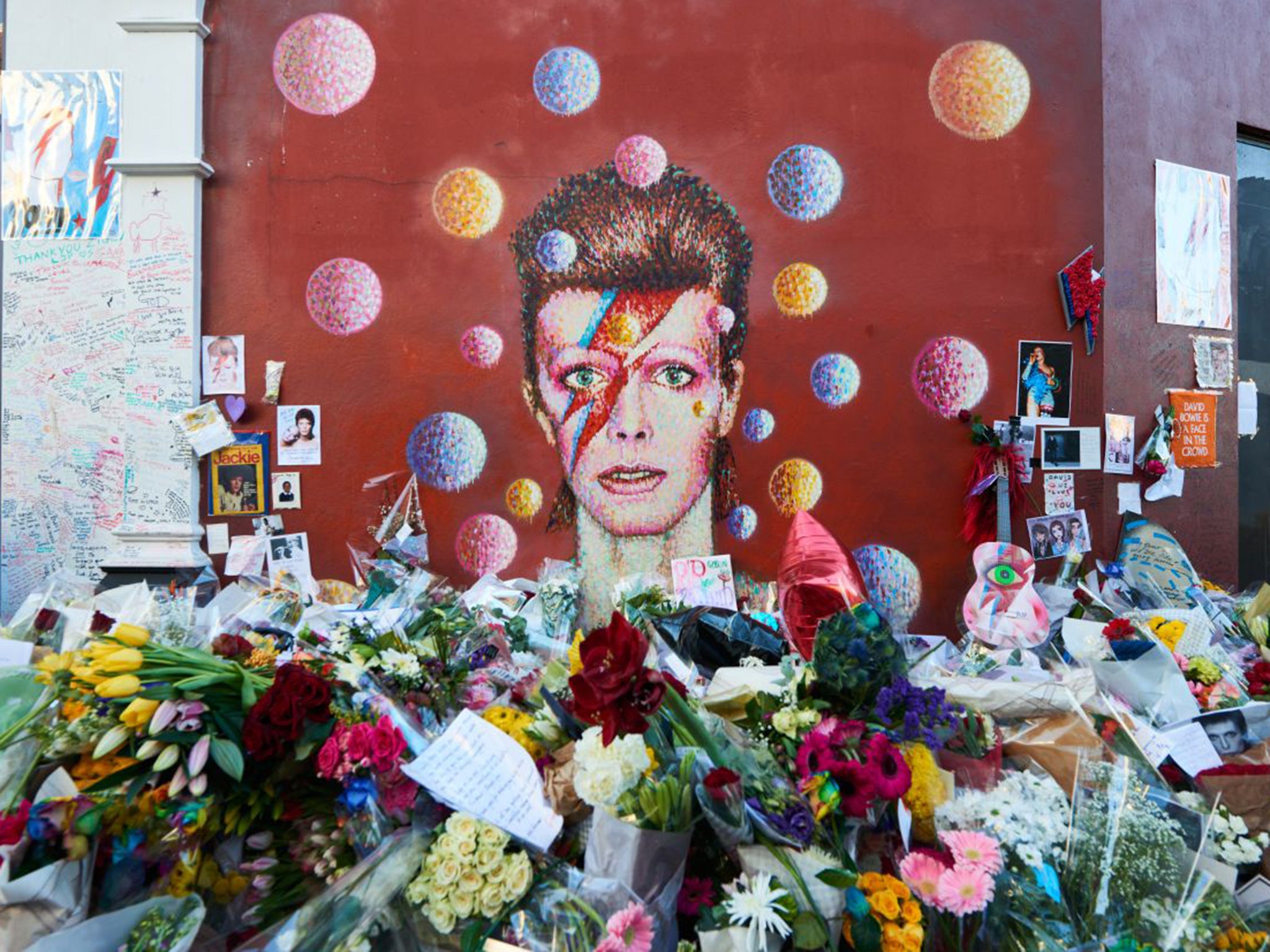The Only Way is Ethics: Was David Bowie’s life and work worthy of all the media tributes?
Those who are not particular fans – including me as it happens – may not have felt his death especially keenly, nor wanted to read every article which has been written about him in the last seven days


A week on from his death, column inches – including several here – are still being filled by reflections on the life, work and legacy of David Bowie.
The national media were united last Tuesday in paying hefty tribute to the late singer. Every front page was dominated by iconic images and hagiographical headlines; most papers, including The Independent, ran special pull-outs or supplements.
Coverage of such depth and breadth about the death of an individual is rare indeed; even more so when the person is not a great political figure, but rather a cultural hero.
It was clear from Wednesday’s letters page that our decision to dedicate a significant portion of the newspaper to reports and analysis of Bowie’s life struck a chord with many readers.
But others were less convinced, arguing that his broader cultural significance had been overstated.
A few who wrote in suggested there was something almost immoral about focusing on the death of a celebrity, however untimely, when there are many thousands of ordinary people living in misery because of war and poverty, whose problems are more deserving of media consideration.
There will, of course, be differences of opinion about Bowie’s brilliance.
Those who are not particular fans – including me as it happens – may not have felt his death especially keenly, nor wanted to read every article which has been written about him in the last seven days.
Likewise, there will be some people who dispute the scale of his wider impact, although it was clear from the tributes which were paid by other musicians, artists and actors that the effect Bowie had on a great many who followed him into artistic endeavour was profound.
Yet there is something else here worthy of comment. One of the most persistent of complaints about newspapers is that they are too negative.
I am frequently told that the press paints an overly – and unfairly – negative picture of the world: representing all children as delinquents; the mentally unwell as potential threats to society’s safety; drug addicts as villains, not victims; Muslims as actual or would-be terrorists. Why, it is asked time and again, can the press not be rather more celebratory about all the good there is around us?
Well, quite so. Therefore when one of this country’s greatest popular music stars dies, we should celebrate his life and career, right? We should consider the extent to which wider developments in music or fashion can be traced to his innovative style, yes? Clearly not, in some eyes.
Perhaps the divergence of views about our coverage reflects the slightly paradoxical view we have in this country – and in the media – of celebrity. Not only do we hype our cultural heroes only to knock them down; more than that, celebrity can these days be an end in and of itself.
No wonder, therefore, that in the eyes of some, celebrity – especially when it is attained in popular culture – attaches only notions of vacuousness.
However, in Bowie’s case, whether or not you liked his music or felt notably saddened by his death, it is certainly difficult to doubt that his achievements were genuine, significant and lasting.
The extent of the media’s coverage might be a useful rejoinder to the idea that fame is an empty game.
Join our commenting forum
Join thought-provoking conversations, follow other Independent readers and see their replies
Comments